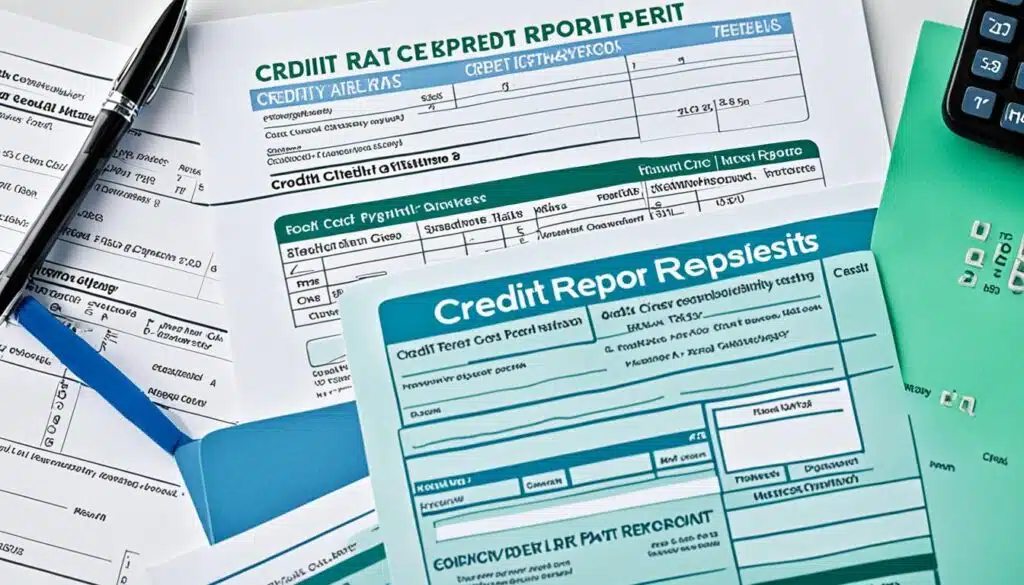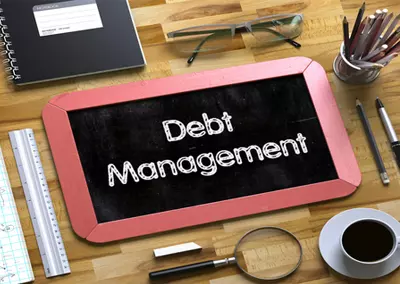Managing your finances can be tough, especially if you didn’t learn about money early on. Only half of U.S. states make financial education a must before high school graduation. This leaves many people to figure out money management by themselves.
Dealing with student loans, low income, or high housing costs can make it seem like you’re stuck. But, there are steps you can take to get back in control of your money. This guide will show you how to handle debt management, save for emergencies, and plan for retirement. With the right steps, you can change your financial life and reach your goals.
Key Takeaways
- Assess your current financial situation to identify areas for improvement
- Understand the power of compound interest and how it can impact your debt and savings
- Prioritize debt repayment and create a plan to pay off balances
- Build an emergency fund to prepare for unexpected expenses
- Start saving for retirement, even if you can only contribute a small amount
Assess Your Current Financial Situation
The first step to managing your personal budget is to check your finances. Look at your income and expenses. Find unnecessary expenses and see how your income compares to expenses. This will help you understand your money better and plan your spending.
Evaluate Your Income and Expenses
Begin by writing down all your income sources. This includes your job, freelance work, investments, and any regular money you get. Then, list all your expenses. Include fixed costs like rent or mortgage, utilities, and loan payments. Also, add variable costs like groceries, transport, and fun activities.
Identify Unnecessary Expenses
After seeing your income and expenses, find unnecessary expenses to cut. Look for places where you might be spending too much. This could be eating out too much, subscription services, or buying things on impulse. Cutting these costs can help you save money for your goals.
Compare Income vs. Expenses
Now, compare your income and expenses to see if you’re spending wisely. If you’re spending more than you make, you need to adjust. You might need to earn more or spend less.
“The first step to financial freedom is understanding where your money is going.”
By looking at your finances closely, you can spot areas to improve. This helps you set goals for financial stability and growth.
Understand the Power of Compound Interest

Knowing about compound interest is key to smart money choices. This type of interest adds up over time, either helping or hurting your finances. It can make debt grow fast or boost your savings significantly.
Picture having $1,000 in a savings account with a 5% interest rate. After one year, you earn $50 in interest, making your total $1,050. The next year, you earn interest on $1,050, adding $52.50, for a total of $1,102.50. This keeps happening, with each year’s interest adding to the previous year’s balance.
- After 10 years, that $1,000 will grow to $1,628.89 thanks to compound interest.
- But, if you have a $1,000 credit card debt at 20% interest rates, it will balloon to $6,727.50 in 10 years due to debt growth.
| Scenario | Initial Balance | Interest Rate | Time Period | Final Balance |
|---|---|---|---|---|
| Savings Account | $1,000 | 5% Annual | 10 Years | $1,628.89 |
| Credit Card Debt | $1,000 | 20% Annual | 10 Years | $6,727.50 |
These examples show how compound interest affects both debt growth and savings growth. Knowing this can help you make better financial choices. It can lead to reaching your financial goals faster.
“Compound interest is the eighth wonder of the world. He who understands it, earns it … he who doesn’t … pays it.” – Albert Einstein
By managing your money well and using compound interest to your advantage, you can shape your financial future. This can help you build wealth over time.
Prioritize Debt Repayment
Paying off debt is crucial for managing your finances well. By making a strategic debt repayment plan and paying more than the minimum, you can clear your debt quicker. This also saves a lot of money on interest over time.
Create a Debt Repayment Plan
First, make a detailed debt repayment plan. List all your debts, including balances, interest rates, and minimum payments. This shows you how much debt you have.
Then, think about using a debt repayment strategy like the debt snowball or debt avalanche method. The debt snowball method pays off the smallest balances first. The debt avalanche method focuses on the highest interest rates. Pick the method that suits your financial situation and preferences.
Pay More Than the Minimum
Paying more than the minimum is key to paying off debt fast. Extra payments cut down the interest you pay and help you become debt-free sooner. Use any extra money, like bonuses or savings, for your debt.
Also, consider debt consolidation or balance transfer credit cards to make payments easier and possibly lower interest rates. These options can help you manage your debt better and speed up repayment.
“The best way to get out of debt is to stop digging the hole deeper.”
By focusing on debt repayment, making a strategic plan, and paying extra, you can take charge of your finances. Stay consistent and disciplined to manage and eliminate your debt effectively.
Build an Emergency Fund

Creating an emergency savings account, or a “rainy day fund,” is key to managing your money well. This fund helps you cover unexpected costs like medical bills, car repairs, or losing your job. Having an emergency fund means you won’t have to use high-interest credit cards or loans when these costs pop up.
Experts say you should save enough for 3 to 6 months of living expenses in your emergency fund. This gives you a financial safety net for sudden crises. Start by saving a bit of your income each month. Automating your savings can make it simpler and speed up your progress.
- Aim to save 3 to 6 months’ worth of living expenses in your emergency fund.
- Automate your savings to make the process easier and more consistent.
- Avoid dipping into your emergency fund for non-essential expenses.
Having an emergency savings account helps you handle unexpected expenses without getting into debt. It keeps your finances safe. By building this fund, you’re ready for life’s surprises and can keep working towards your financial goals.
“An emergency fund is the foundation of a sound financial plan. It’s your first line of defense against unexpected costs that can derail your progress.”
Start Saving for Retirement
Saving for retirement is key to a secure future. By planning ahead, you can ensure a comfortable retirement. Consider your employer’s 401(k) plan and individual retirement accounts (IRAs) for saving.
Enroll in Your Employer’s 401(k) Plan
Enrolling in your employer’s 401(k) plan is a smart move. This plan lets you put part of your income before taxes. This reduces your taxes now and grows your money without taxes until later. Plus, many employers match your contributions, which can greatly increase your savings.
Start by putting in enough to get the full employer match. This is like getting free money for your retirement. As you can, increase your contributions to save more for the future.
Consider Opening an IRA
Along with a 401(k), think about an individual retirement account (IRA). IRAs have tax benefits and give you more control over your savings. There are traditional and Roth IRAs to choose from.
- Traditional IRA: You put in pre-tax dollars, so your money grows without taxes until you take it out. Then, you pay taxes on it.
- Roth IRA: You put in after-tax dollars, but you won’t pay taxes on withdrawals in retirement. This can be a big tax advantage later.
When picking between a traditional and Roth IRA, think about your taxes now and later. Your retirement goals also matter. A financial advisor can help pick the best IRA for you.
Using a 401(k) and an IRA together helps you build a strong retirement fund. The sooner you start, the more time your money has to grow. This is thanks to compound interest.
Debt Management Strategies

Managing debt well is key to financial stability and security. Debt consolidation and balance transfer credit cards are two strategies to help you manage your finances better.
Debt Consolidation
If you have many high-interest loans or credit card balances, think about consolidating them into one loan with a lower interest rate. This makes your payments easier and can save you money on interest. Debt consolidation loans, also known as debt consolidation loans, combine your debts into one with a fixed interest rate and repayment period.
The benefits of debt consolidation include:
- Lower interest rates can mean smaller monthly payments
- A simpler way to manage your payments with just one payment
- Pay off debt faster by focusing on one balance
When looking at debt consolidation loans, make sure to compare interest rates and fees to find the best deal for you.
Balance Transfer Credit Cards
Balance transfer cards can be a great tool for managing debt. These cards let you move your high-interest credit card balances to a new card with a 0% introductory APR. This gives you time to pay down the debt without extra interest rates.
The main benefits of balance transfer cards are:
- A temporary 0% APR helps you focus on paying off the principal
- Can save money on interest compared to high-interest cards
- Makes paying off multiple balances easier by consolidating them into one
When picking a balance transfer card, watch out for balance transfer fees, the 0% APR period length, and if you can pay off the balance before the special rate ends.
Using these debt management strategies can help you take big steps towards controlling your finances and becoming debt-free. Always think about your options and choose what’s best for your financial situation.
Reduce Spending and Increase Income
To take control of your finances, focus on cutting spending and boosting your income. This dual approach helps you pay off debt faster and grow your savings. It’s a powerful way to manage your money better.
Track Your Expenses
Start by tracking where your money goes. Categorize your expenses into must-haves and nice-to-haves. This helps you see where you can save, like on dining out or entertainment.
Cut Back on Non-Essential Costs
After identifying your extra spending, find ways to reduce it. Say no to impulse buys, cook more at home, and cancel unused memberships. These changes can quickly save you money for debt and savings.
While cutting costs, also look to make more money. Consider freelance work, pet-sitting, or selling crafts. You might also ask for a raise at your main job or take on more hours.
Using budgeting, expense tracking, spending reduction, and income generation strategies helps you manage your finances better. This approach aids in debt repayment and improving your financial health.
“The key to financial freedom is to live below your means, not above them.” – Thomas J. Stanley
Establish Healthy Credit Habits

It’s key to manage your finances well by having good credit habits. Your credit score and report are very important for getting loans, credit cards, and even jobs. By being responsible with credit, you can build a strong credit history and open doors to financial success.
Review Your Credit Report Regularly
Checking your credit report often is a smart move. It shows your credit history, like your payment history and credit card use. This lets you spot mistakes or fraud early, keeping your credit score accurate.
Monitor Your Credit Score
Your credit score shows how likely you are to pay back loans. It’s between 300 and 850. A high score means you’re seen as less risky. Keeping an eye on your score helps you see how your finances are doing and spot any changes.
Make All Payments on Time
On-time payments are key to a good credit score. Payment history is a big part of your score. Set up automatic payments or reminders to never miss a payment.
Keep Credit Card Balances Low
Your credit utilization ratio is important too. It’s the amount you’re using versus your total credit limit. Try to keep your balances under 30% to show you’re using credit wisely.
Use Credit Responsibly
It’s not just about paying on time and keeping balances low. Using credit wisely matters too. Avoid opening many new accounts or closing old ones to keep your score healthy.
By following these tips, you can build a strong credit history. This opens up better financial opportunities and helps you manage your money better.
| Credit Habit | Importance | Impact on Credit Score |
|---|---|---|
| Review credit report regularly | Identifies inaccuracies and fraud | Maintains accuracy of credit history |
| Monitor credit score | Tracks creditworthiness | Enables proactive financial management |
| Make payments on time | Demonstrates responsible borrowing | Positively impacts payment history |
| Keep credit card balances low | Maintains low credit utilization ratio | Improves credit utilization factor |
| Use credit responsibly | Builds a healthy credit history | Enhances overall credit profile |
“Your credit score is the foundation of your financial well-being. Establishing healthy credit habits is the key to unlocking a world of financial opportunities.”
Invest for Long-Term Growth

As you work to pay off your debts, it’s key to also invest for long-term growth. Investment strategies can help you build wealth and secure your financial future. By diversifying your portfolio and taking a long-term investing approach, you can grow your wealth and secure your financial future.
Creating a diversified portfolio is a key step in investing for the long-term. This means spreading your investments across different areas like stocks, bonds, and real estate. This strategy can help reduce risk and provide more stable returns over time.
- Start small if you need to. Even small amounts can grow a lot over time thanks to compound interest.
- Boost your investments as your finances get better. The more you save and invest, the faster your wealth will grow.
- Think about investing in a mix of low-cost index funds and actively managed funds to balance risk and returns.
- Avoid making quick investment decisions based on short-term market changes. Stick to your long-term plan.
“Investing should be more like watching paint dry or watching grass grow. If you want excitement, take $800 and go to Las Vegas.” – Paul Samuelson
By being patient and disciplined in your investing, you can use the power of compound interest to build wealth over time. This, along with paying off debt and building a strong financial base, can help you reach your financial goals.
Debt Management
Managing your debt well is key to taking charge of your money. By using smart debt reduction methods, you can lessen financial stress. This leads to a more secure financial future.
Create a Debt Repayment Plan
Start by making a detailed debt repayment plan. List all your debts, including interest rates and minimum payments. Focus on high-interest debts like credit card balances first. Add more money to these loans to speed up repayment.
Consolidate High-Interest Loans
Merging several high-interest loans into one with a lower rate can make managing debt easier. Look into balance transfer credit cards or personal loans with better terms. This can help reduce the interest you pay.
Build an Emergency Fund
Having an emergency fund is vital for managing debt. Save some money each month to have a financial safety net. This way, you won’t need more debt for unexpected costs. It keeps your debt repayment on track, even when times are tough.
| Debt Reduction Strategy | Potential Benefits |
|---|---|
| Debt Consolidation | Simplifies debt management, potentially reduces interest rates |
| Balance Transfer Credit Cards | Offers a promotional 0% APR period to pay off high-interest debt |
| Increased Debt Repayments | Accelerates debt payoff, reduces overall interest paid |
| Emergency Fund | Provides a financial cushion to avoid relying on additional debt |
Using these debt reduction strategies can help you manage your debts well. Stick to them for a more financially secure future. Remember, being consistent and disciplined is crucial for good financial planning and personal finance management.
“The first rule of compounding: Never interrupt it unnecessarily.” – Charlie Munger
Also Read : An Investor’s Guide To Private Equity
Conclusion
By taking charge of your finances, you can handle and clear debt. This helps build a solid financial base. It also moves you closer to your long-term financial goals.
This approach to personal finance gives you the power to be financially independent and stable.
We’ve looked at the main steps for financial management, debt control, and personal finance in this article. You’ve learned how to check your finances and use debt management strategies to take back control of your money.
The path to financial freedom is not easy and never ends. Keep sticking to your financial plan, watch your progress, and change things when needed. With hard work and determination, you can reach your financial independence goals. This will lead to a brighter and wealthier future.
FAQs
Q: What is a debt management plan?
A: A debt management plan (DMP) is a structured repayment program designed to help individuals in managing and paying off their debts effectively.
Q: How does a debt management plan work?
A: In a debt management plan, you work with a credit counseling agency to create a payment plan that fits your budget. The agency negotiates with your creditors for reduced interest rates and fees to help you pay off your debt faster.
Q: What are some alternatives to a debt management plan?
A: Alternatives to a debt management plan include debt settlement, debt consolidation loans, and bankruptcy. It’s essential to explore all options and choose the one that best fits your financial situation.
Q: How can a debt management plan lower my interest rates?
A: Through a debt management plan, credit counseling agencies may negotiate with your creditors to lower your interest rates, making your monthly payments more manageable.
Q: What is involved in the process of debt collection?
A: Debt collection is the process creditors use to pursue payment of debts owed by individuals or businesses. It may involve contacting the debtor directly or using a third-party debt collector.
Q: How do I make a payment towards my debt management plan?
A: You can make payments towards your debt management plan through the credit counseling agency managing your DMP. They will then distribute the funds to your creditors as per the agreed-upon payment plan.
Q: How long does it take to pay off debt through a debt management plan?
A: Typically, a debt management plan lasts three to five years, depending on the total debt amount and your ability to make regular payments.
Q: What should I consider before enrolling in a debt management plan?
A: Before enrolling in a debt management plan, consider factors such as your total debt amount, income, budget, and the reputation of the credit counseling agency offering the program.





